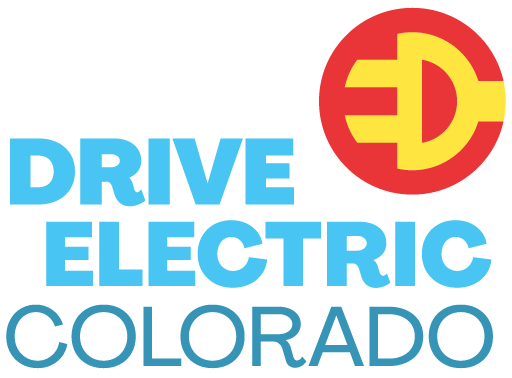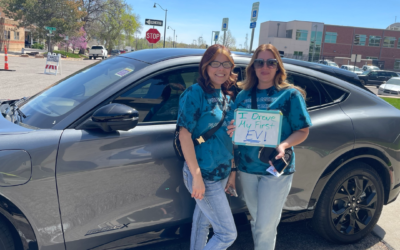
Myth: EVs are more prone to catch fire and more dangerous than gas cars.
Myth Busted: Just as it’s true that your gas car can catch fire, it is true that an electric vehicle (EV) can catch fire. However, EVs are some of the top-rated cars for safety and are less likely to catch fire compared to gas cars.
According to an investigation by Battelle for the National Highway Traffic Safety Administration, “The propensity and severity of fires and explosions from … lithium-ion battery systems are anticipated to be somewhat comparable to or perhaps slightly less than those for gasoline or diesel vehicular fuels…”.
Lithium-ion (Li-ion) battery fires are different from gasoline fires as they take time to achieve the necessary heat to ignite (called thermal runaway), whereas gasoline ignites immediately when it encounters a spark or flame. Because of this, Li-ion batteries have a significantly lower risk of causing a fire or explosion. When they do, it is usually a result of significant external damage. Battery packs in electric vehicles rarely encounter serious damage, and it is often the result of a highly unusual or severe accident.
https://www.edmunds.com/electric-car/articles/electric-car-fires.html#:~:text=The%20MSB's%202023%20report%20found,fires%20during%20that%20same%20time.
Statistics from 2015 showed that 174,000 vehicle fires were reported, and almost all of them involved gasoline vehicles. Tesla claims that gasoline cars are 11x more likely to catch fire than a Tesla, and that the best comparison of safety is fires per billion miles driven. If we compare using this method, there are approximately five EV fires for every billion miles traveled, compared to 55 fires per billion miles traveled in gasoline cars. Although this analysis is promising, there is still not enough data on electric vehicles to make definitive comparisons at this point.
The technology used in EVs is specifically designed to prevent thermal runaway. The batteries are surrounded by a cooling shroud filled with liquid coolant to prevent them from overheating. If the batteries do manage to overheat even with the coolant, all EV batteries are installed in an array whose clusters are separated by additional firewalls to limit the amount of damage in the case of malfunction. However, because Li-ion battery fires are still new to fire departments and emergency teams, it can take significantly more effort to tame the fire. Because Li-ion batteries have energy stored in the battery pack, thermal runaway can take over and cause the fire to flare for several hours, requiring significant amounts of water to get it under control.
While we have been seeing more reports in the news about Li-ion battery fires in Teslas and with the Chevy Bolt recall, it’s important to remember that EV battery fires garner significantly more news compared to when a gas engine catches fire. This is because of the increased scrutiny of the EV industry and the relative novelty of this technology. However, every fire is cause for concern and the car manufacturers are working to fix the problems, including the manufacturing defects found to increase risk of fire in the Chevy Bolts. To reduce the risk of fires in malfunctioning electric models, it is important to follow the recommendations of the manufacturer, including maintaining a charge between 20–80% and avoiding leaving the car charging unattended overnight.
The most important thing to remember is that these are early days for developing EV battery technology and safety. As more research is completed and more data becomes available, these vehicles will become even safer.
Source 1: Isidore, Chris. “Are Electric Cars More Likely to Catch Fire?” CNNMoney, Cable News Network, 17 May 2018, money.cnn.com/2018/05/17/news/companies/electric-car-fire-risk/index.html.
Source 2: Hyatt, Kyle. "Electric Car Fires. What You Should Know." Edmunds, 3 March, 2024, https://www.edmunds.com/electric-car/articles/electric-car-fires.html#:~:text=The%20MSB's%202023%20report%20found,fires%20during%20that%20same%20time
Source 2: McConnell, Malcolm. “Are Electric Cars Safer in Collisions?” Allen, Allen, Allen & Allen, 26 Sept. 2019, www.allenandallen.com/are-electric-cars-safer-in-collisions/.
Source 3: Morris, Charles. “Tesla says fire incidents are 11 times lower for its vehicles than for the average US vehicle.” Charged Magazine. 15 August 2021. https://chargedevs.com/newswire/tesla-says-fire-incidents-are-11-times-lower-for-its-vehicles-than-for-the-average-us-vehicle/.
Source 4: Crothers, Brooke. Are Electric Cars Safe? Another Chevy Bolt Caught Fire, A Tesla Model S Plaid Did Too. Forbes. 11 July 2021. https://www.forbes.com/sites/brookecrothers/2021/07/11/are-electric-cars-safe-another-chevy-bolt-caught-fire-a-tesla-model-s-plaid-did-too/.
Source 5: Ramey, Jay. GM Recalls Every Chevy Bolt Made over Battery Fire Risk. Yahoo News. 23 August 2021. https://news.yahoo.com/gm-recalls-every-chevy-bolt-151300260.html.




